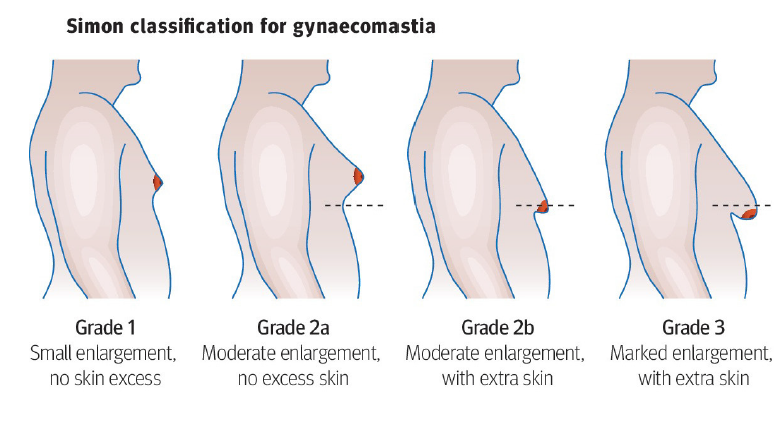Gynaecomastia
Gynaecomastia can be defined as the benign proliferation of male breast glandular tissue (1) with a mass consisting of >2cm in size, which appears as firm, palpable, subareolar gland and ductal breast tissue on examination (2)
- this condition mainly results from a relative decrease in androgen effect or increase in oestrogen effect (2)
- it may be drug-induced or associated with conditions which alter the oestradiol / testosterone ratio, for example, chronic liver disease
- it commonly occurs in puberty and old age and is most often entirely reversible.
Pseudogynaecomastia is the condition in which breast enlargement occurs mainly due to excess adipose tissue formation (2).

Male breast cancer accounts for about 0.6% of all breast cancer: there almost 400 cases annually in the UK (c.f. 55,000 in women) (3).
Reference:
- (1) Johnson RE, Murad MH. Gynecomastia: pathophysiology, evaluation, and management. Mayo Clin Proc. 2009;84(11):1010-5.
- (2) Niewoehner CB, Schorer AE. Gynaecomastia and breast cancer in men. BMJ. 2008 Mar 29;336(7646):709-13.
- (3) Association of Breast Surgery Summary Statement (June 2019). Investigation and management of gynaecomastia in primary and secondary care.
Related pages
Create an account to add page annotations
Annotations allow you to add information to this page that would be handy to have on hand during a consultation. E.g. a website or number. This information will always show when you visit this page.